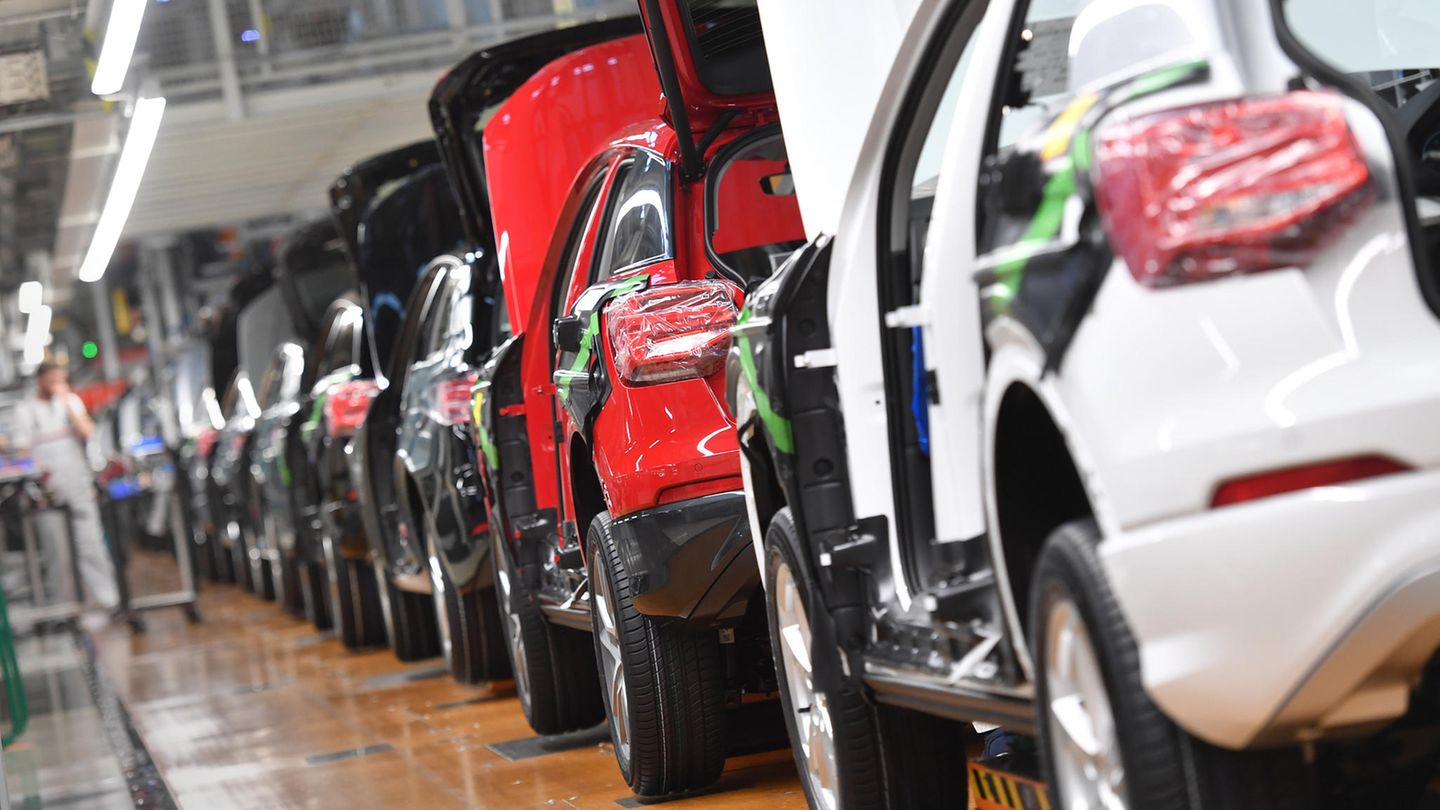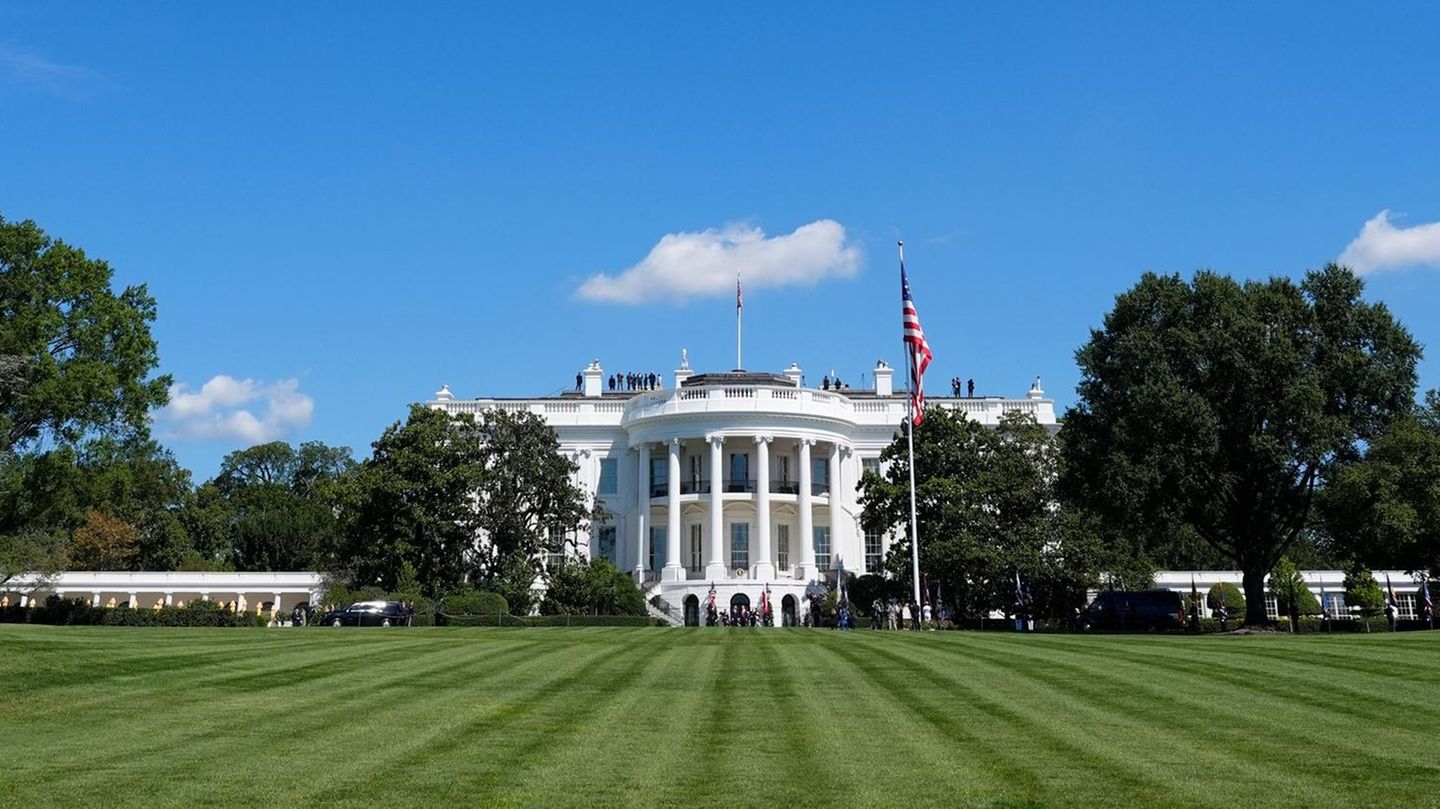After the global chip crisis, the automotive industry is once again facing major delivery bottlenecks and production disruptions. German car manufacturers shut down their plants due to the Ukraine war. There is a risk of even longer delivery times for new cars.
The effects of the Ukraine war are enormous. Because the big German car manufacturers such as VW, Mercedes and BMW not only export vehicles to the Ukraine and Russia, they also operate Russian plants. Now they stand still. Production is not only canceled in Russia, but also in Europe and Germany. The entire industry is facing uncertain times.
“Russia’s acts of war are leading to the disruption of supply chains. Transport is restricted, production at supplier companies is down,” said VDA President Hildegard Müller on Thursday.
The global supply bottlenecks that existed before the start of the Ukraine war are now increasing significantly. “The additional interruptions in train and ship connections caused by the war and restrictions in air traffic are already having a significant impact on the supply and logistics chains, and we expect the supply of parts to be tightened,” says Müller. The delivery bottlenecks finally lead to a production stop in many plants of German manufacturers. The supply chains to and from China, for example, are also affected because transport is becoming increasingly difficult.
In the short term there are delivery bottlenecks with the cable harnesses. This is a complex component that is sometimes individually developed for each vehicle model. A wiring harness consists of a large number of cables that are responsible for the functioning of the vehicle electrical system. The strand, which weighs around 60 kilograms, is largely manufactured manually. In addition to Tunisia, the Ukraine in particular is an important supplier of wiring harnesses for European manufacturers. Due to its complexity, production cannot be rearranged at short notice or otherwise substituted.
The Nuremberg cable manufacturer Leoni has closed its two plants in Ukraine. “We are working – in close cooperation with our customers and suppliers – at full speed to manage the consequences of the current production interruptions in our two plants in Stryi and Kolomyja, triggered by the Russian war of aggression against Ukraine, for everyone involved as best as possible,” said the company on Wednesday in Nuremberg. The production outages in Ukraine at Leoni and several other suppliers would have consequences for the availability of parts, especially in the European automotive industry.
VW, Mercedes and BMW stop production
As a result of the ongoing war situation, VW stopped production at its Russian plants in Kaluga and Nizhny Novgorod on Thursday. The group had previously reacted to the delivery problems from Ukraine with short-time work in its plants in Dresden and Zwickau. In the next week, VW will only produce to a limited extent in its large plants in western Germany. In the week after next, production should then come to a complete standstill. The production of commercial vehicles is also affected. All of the German car company’s exports to Russia would also be “stopped with immediate effect”. The same applies to its Porsche brand. The production in Leipzig is also out of order.
Mercedes-Benz also suspended its exports to Russia and production there, as the company announced on Wednesday evening. Almost three years ago, the Stuttgart company inaugurated its first car plant near Moscow.
BMW also stopped building cars in Kaliningrad, Russia, and exporting to Russia. In addition, there will be production interruptions in German and European plants due to delivery bottlenecks, it was said on Tuesday in Munich. In the coming week, vehicle production in Munich and Dingolfing as well as engine production in the AustrianSteyr rest. Production of the Mini in Oxford has also been suspended. As a BMW spokesman told the “FAZ”, adjustments to the production shifts will also be necessary in the Leipzig and Regensburg plants. BMW production in Europe has come to an almost complete standstill.
The Munich have set up a crisis team. “The responsible specialist departments are in intensive talks with the suppliers in order to secure the supply via alternative production sites and to start production again as quickly as possible,” said the group spokesman.
Market share of German car manufacturers at almost 20 percent
According to the VDA, German manufacturers produced 170,000 cars in Russia itself in 2021. Most of these were also sold there. The market share of German manufacturers in Russia is almost 20 percent. The German automotive industry has 43 plants of its own in Russia and six in the Ukraine.
According to the VDA President, German manufacturers exported around 40,000 vehicles to Russia and Ukraine last year – 4,100 cars to Ukraine and 35,600 cars to Russia. That corresponds to 1.7 percent of all car exports from Germany.
Future of auto industry unclear
When and how car production will continue is unclear. Müller assumes that there will be shortages and price increases for raw materials in the long term. Ukraine is one of the most important neon suppliers. The gas is required for the manufacture of semiconductors. The chip shortage could thus be further exacerbated. There could also be a palladium deficiency. The metal is used for catalytic converters and about a fifth is imported to Germany from Russia.
Russia is also an important producer of nickel ore. According to forecasts, the demand for nickel will multiply. It is an important raw material for the production of lithium-ion batteries and “irreplaceable for the ramp-up of electromobility”. In the case of other raw materials and supplies, the exact effects cannot yet be quantified.
Sources: , , , , with material from the dpa
Source: Stern
I am a 24-year-old writer and journalist who has been working in the news industry for the past two years. I write primarily about market news, so if you’re looking for insights into what’s going on in the stock market or economic indicators, you’ve come to the right place. I also dabble in writing articles on lifestyle trends and pop culture news.




